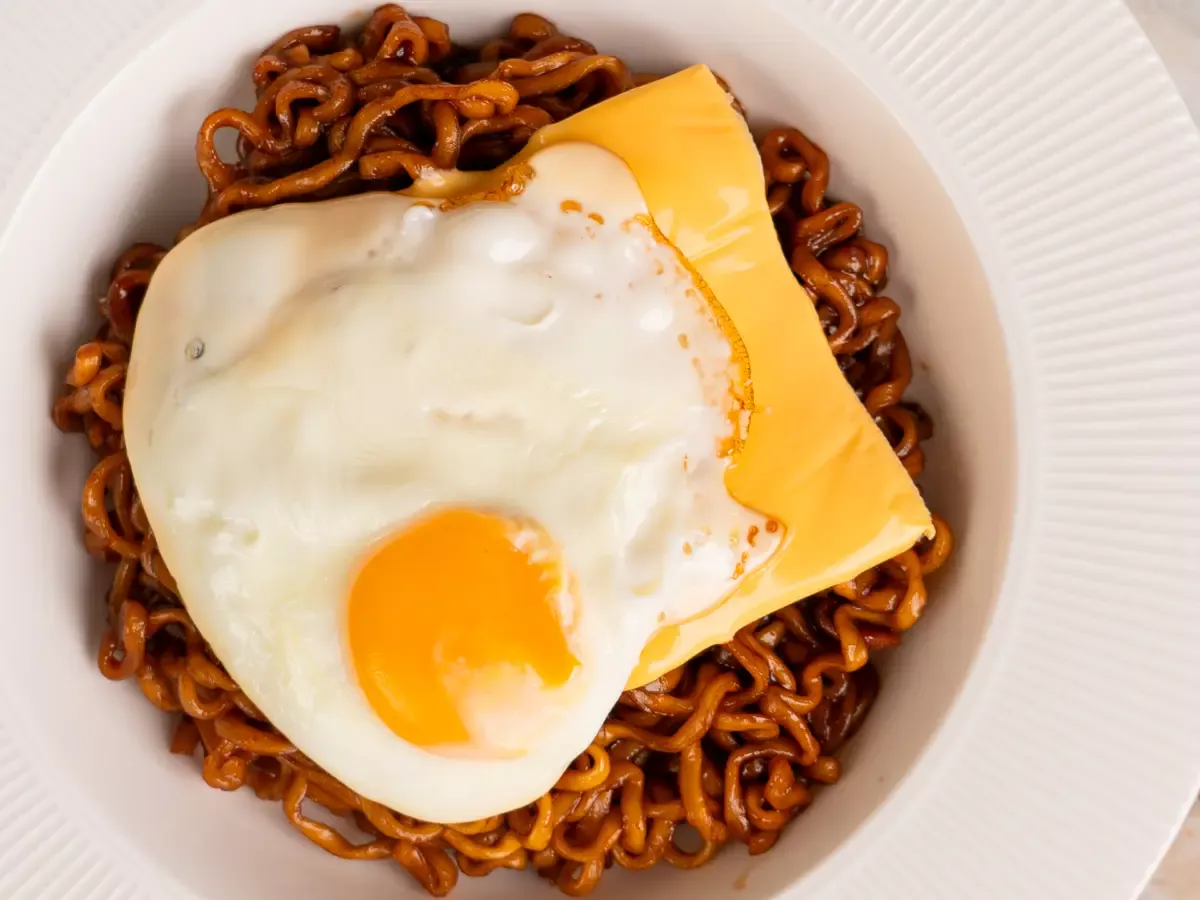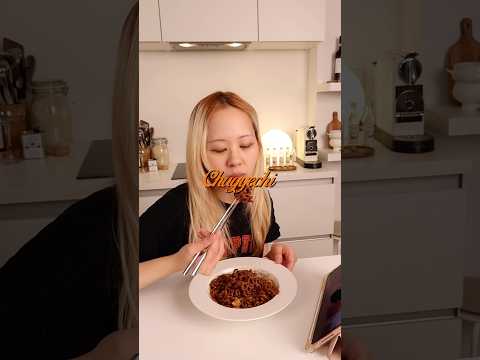Today, let’s make an even more delicious Chapagetti recipe: Chagyechi (짜계치).
After trying this once, you might always want to eat Chapagetti this way. In just 5 minutes, you can create a fancy noodle dish with simple ingredients.
What is Chagyechi?
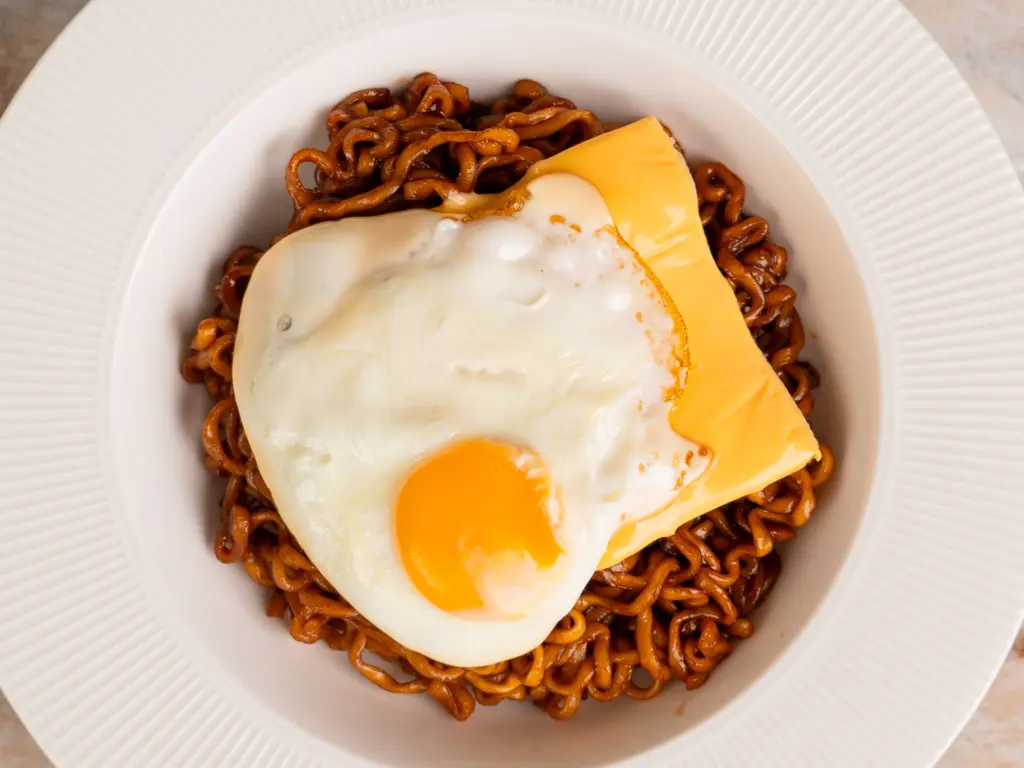
Chagyechi (짜계치) is just what it sounds like: Cha (chapagetti) + gye (egg) + chi (cheese).
If you’ve seen the movie Parasite, you might remember “Chapaguri” (chapagetti + neoguri ramen). Koreans love to remix instant Korean ramen into fun and tasty new recipes – and Chagyechi is one of them.
Chapaguri: https://amzn.to/43TkhPA (US), https://amzn.to/43TkgLw (UK), https://amzn.to/43RAYuH (DE)
It’s one of the most popular ways Koreans enjoy Korean ramen with a twist. The best part? You don’t need any fancy ingredients-just simple things you probably already have at home.
PC Bang Food?
In Korea, PC bangs (Internet cafes) are everywhere. But they’re not just for gaming – they’re like casual hangouts where you can order drinks and food, just like in a cafe. The menu is surprisingly diverse, ranging from instant cup noodles to dumplings, tteokbokki, kimchi fried rice, and more.
Chagyechi actually originated as a popular PC bang dish.
In PC bangs, the food is more like quick and satisfying bunsik-style street food than formal meals. That’s why the Chagyechi recipe evolved into a one-pot method that doesn’t require draining the water—perfect for fast cooking.
It also features two of the most beloved ramen toppings in Korea: egg and cheese. The result? A bold, flavorful snack with that addictive Korean comfort food vibe.
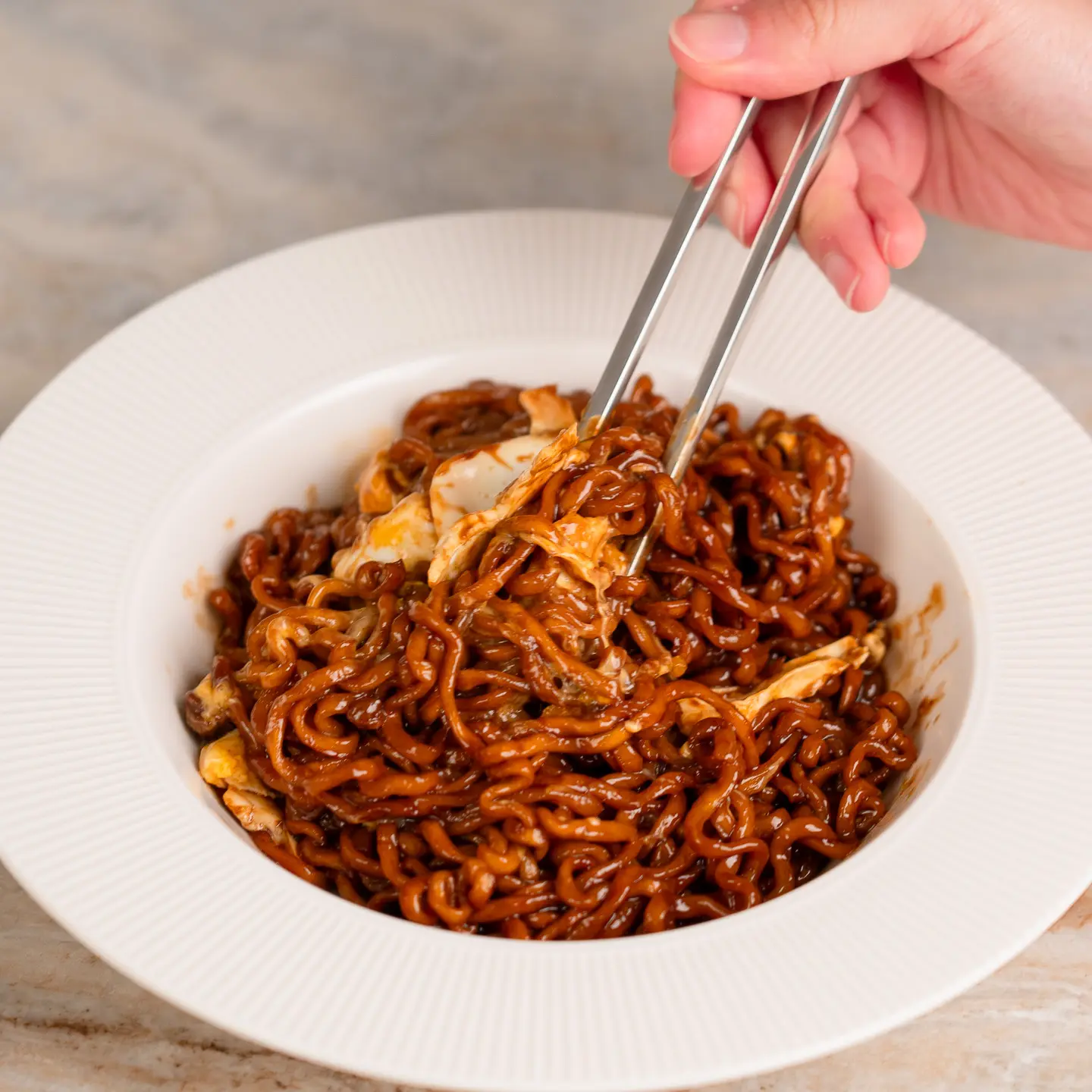
Chagyechi Ingredients
- Chapagetti: You can use the original Chapagetti or any other version, like Spicy Sichuan version. They all work well.
- Egg: A sunny-side-up egg with a soft yolk is a must. When mixed into the noodles, the runny yolk adds a rich, nutty flavor.
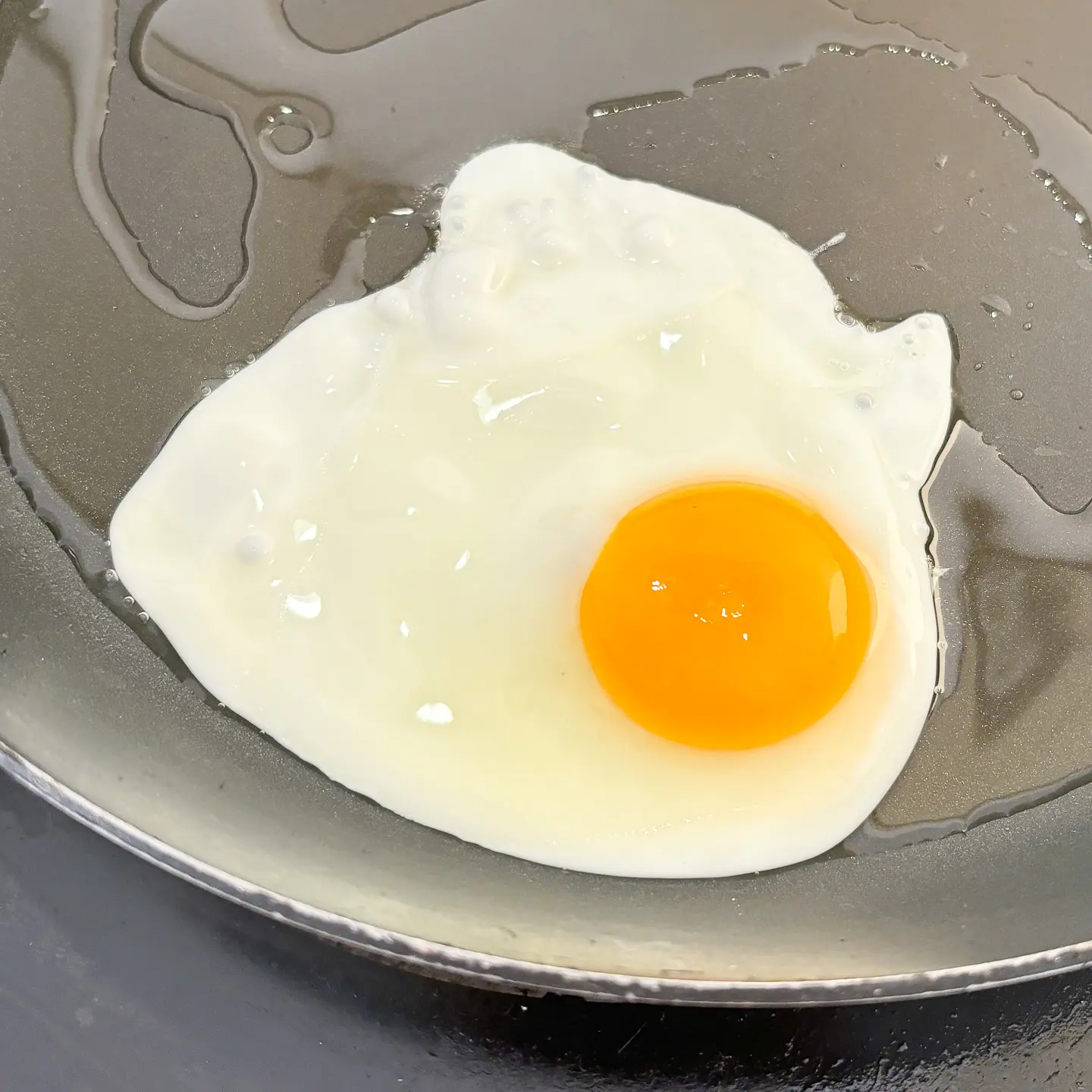
- Cheese: No need for fancy cheese—just a slice of classic yellow cheddar will do. It adds that bold, savory punch.
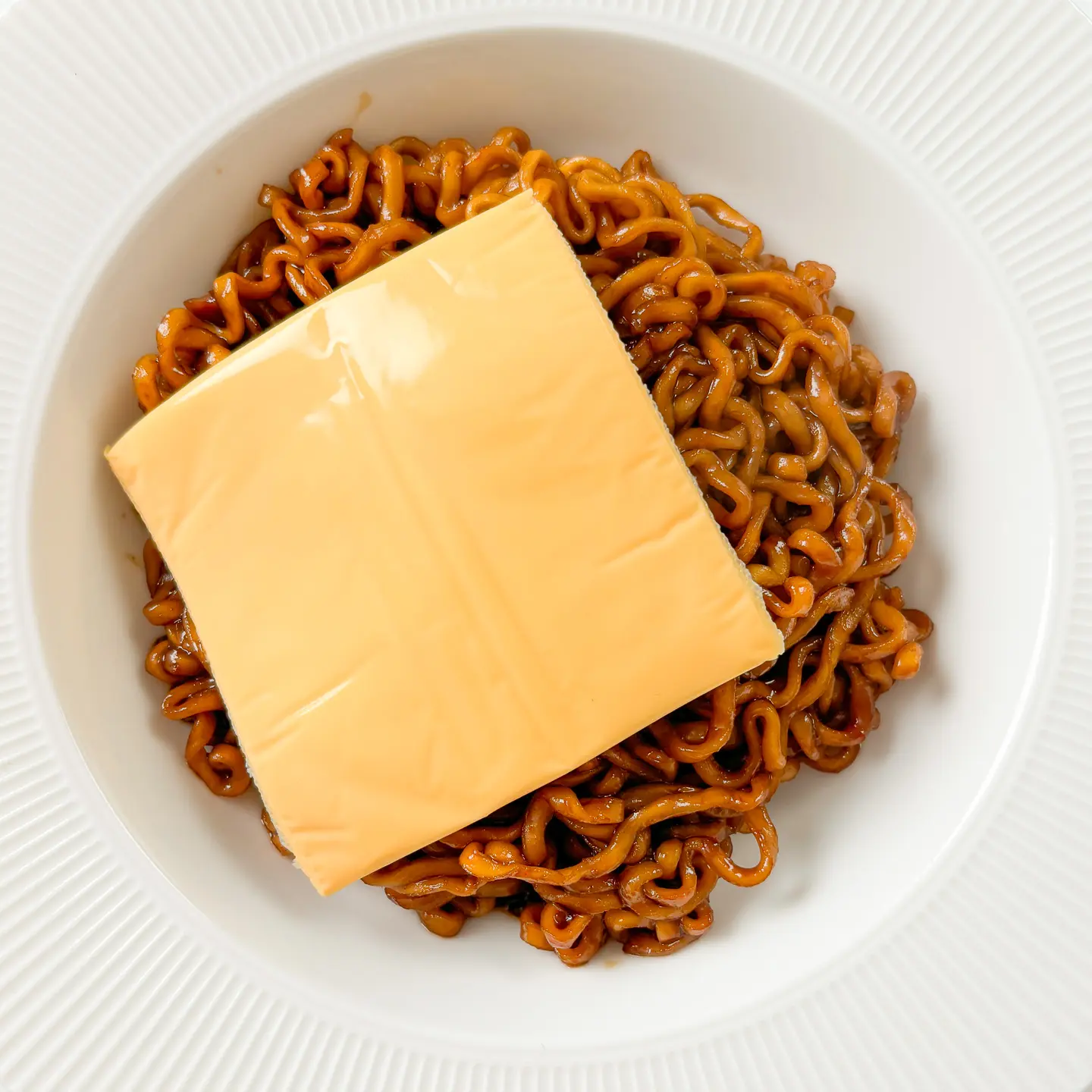
- Optional extras
- Add ½ tablespoon of fish sauce (anchovy or tuna extract) for deeper umami flavor.
- Add ½ teaspoon of sugar if you want a slightly sweet, bunsik-style taste—it’s a popular street food trick.
What Does Chapagetti Taste Like?
Chapagetti is a Korean instant noodle with a jjajang (black bean sauce) powder base. It has that perfect balance of sweet and salty—“dan-jjan” as Koreans call it—which is a flavor combo we absolutely love.
The addition of olive oil gives it a rich, nutty aroma, and the powder seasoning has hints of savory meat and onion, adding a deep umami taste.
The noodles are slightly thicker than regular instant ramen, so they have a pleasantly chewy texture that makes each bite more satisfying.
Chapagetti Ramen: What’s Inside the Pack?
Each pack comes with four main parts
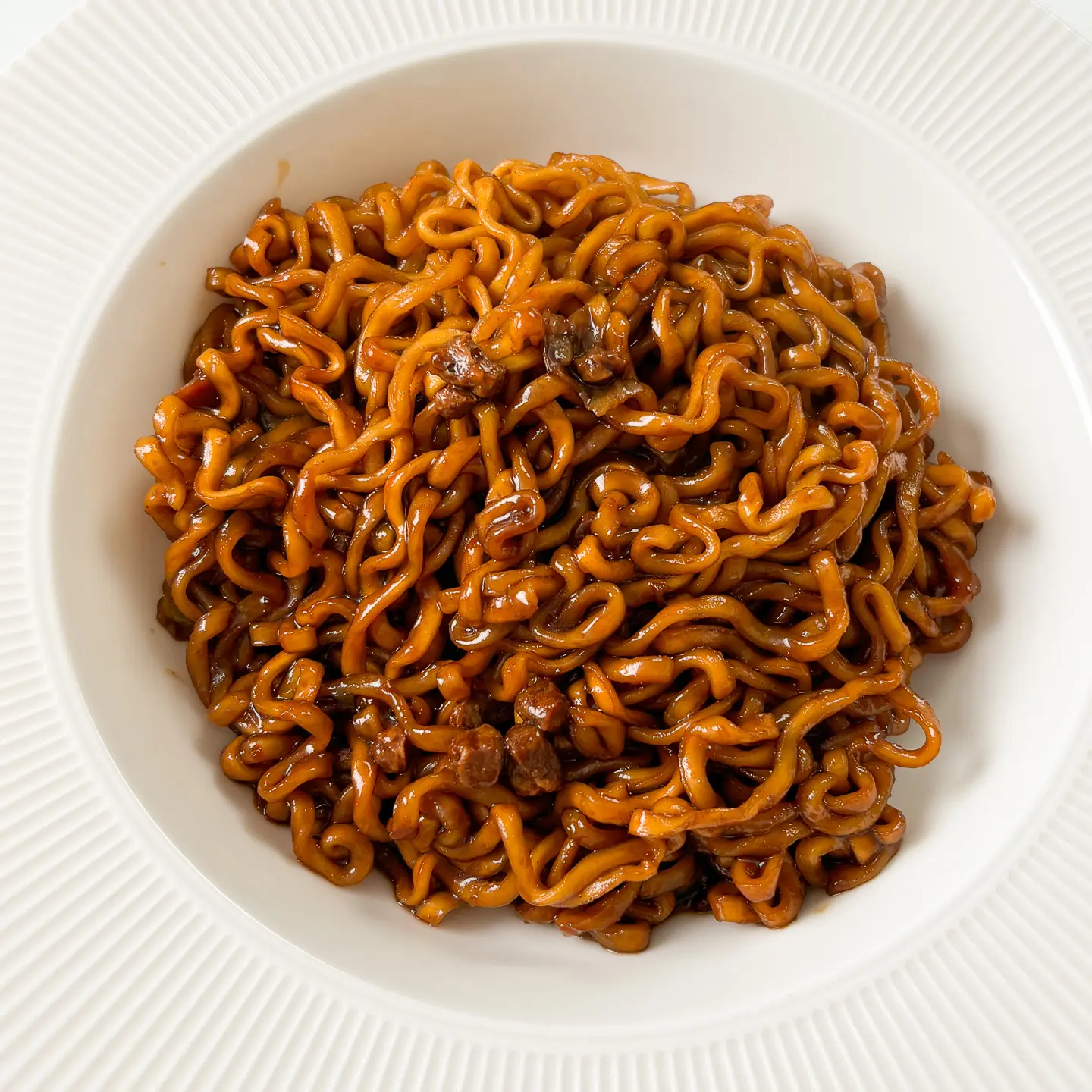
- Ramen noodles
- Powdered sauce mix
- Dried vegetable flakes
- Olive oil seasoning packet
Fun fact: the “meat” bits in the flakes aren’t real meat—they’re actually soy-based chunks.
Not Vegan
Chapagetti uses soy meat chunks in the flakes, but it’s not vegan. The seasoning powder contains eggs, pork, beef and shrimp.
Not Halal
Chapagetti is not halal, as it includes pork-derived ingredients.
Are Chapagetti And Jajangmyeon The Same?
Both are often called “Korean black noodles” in English, but to Koreans, they’re completely different dishes. Let’s break it down by taste, noodles, sauce, and aroma.
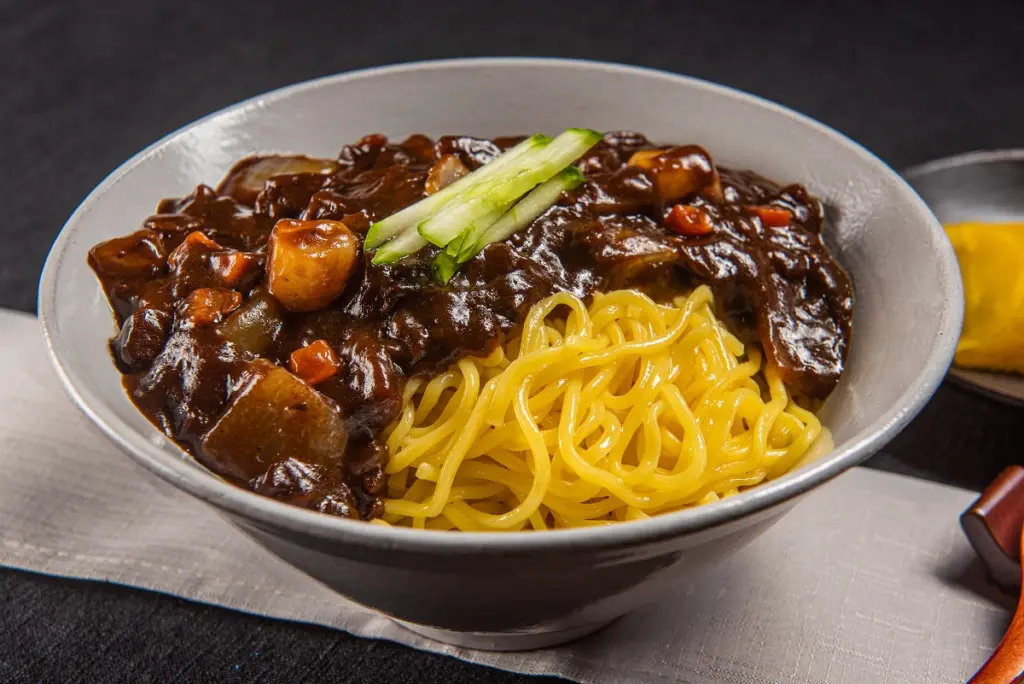
Taste
- Chapagetti has a stronger sweet flavor compared to jajangmyun. It’s lighter and has that signature instant noodle umami with a nutty kick.
- Jajangmyun, on the other hand, is made by stir-frying black bean paste (chunjang), giving it a much deeper, richer flavor. It’s savory and complex, thanks to the combination of meat and vegetables cooked together.
Noodles
- Chapagetti uses slightly thicker noodles than regular instant ramen, but they’re still thinner than jajangmyeon noodles.
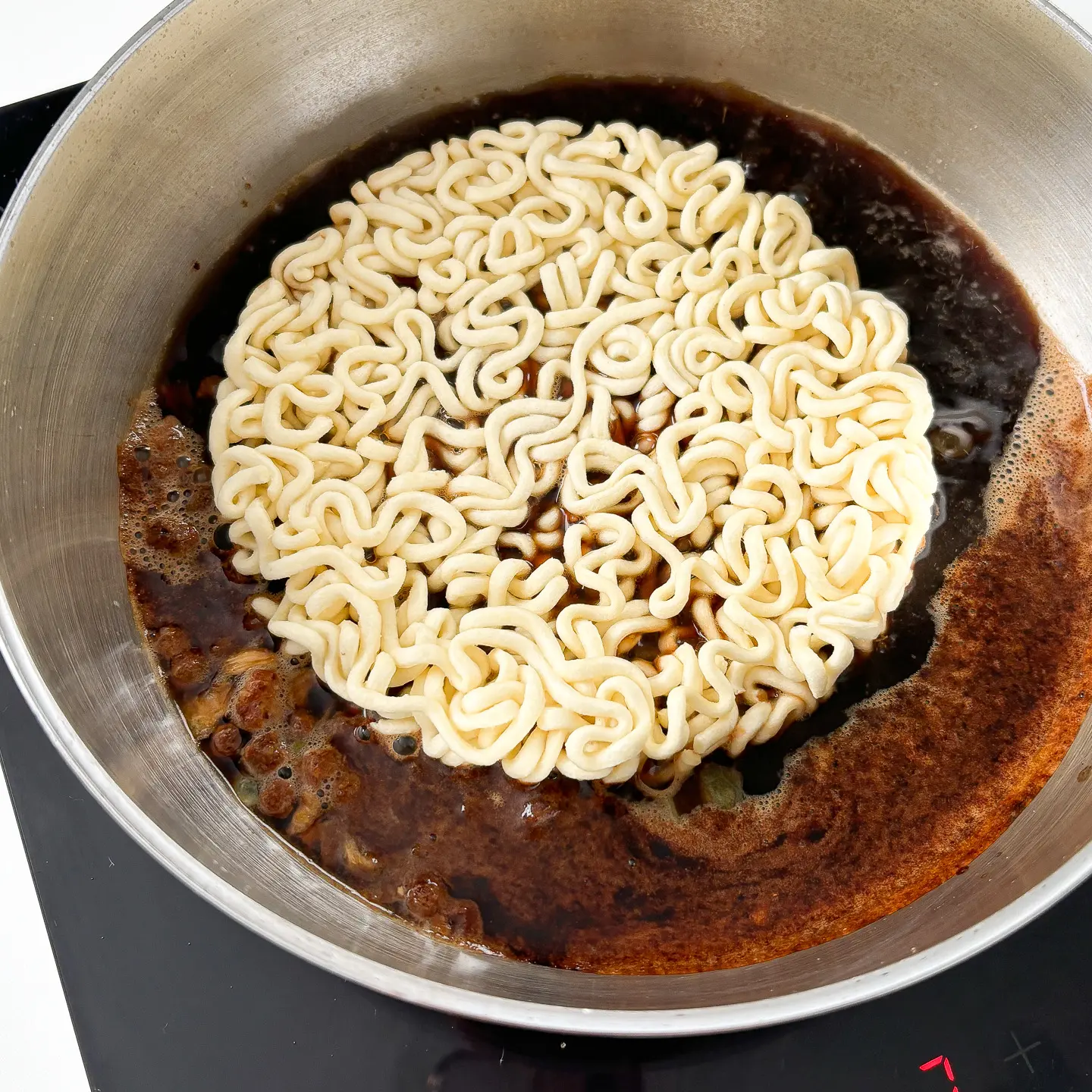
- Jjajangmyun typically uses fresh, hand-pulled or machine-made noodles that are thicker, bouncier, and have a chewier texture.
Cooking Method
- Chapagetti is quick and easy—you just boil the noodles, drain most of the water, then mix in the powder and oil. It takes around 5 minutes.
- Jajangmyeon is more involved: you stir-fry the sauce from scratch with meat and veggies, and separately cook the fresh noodles. It takes more time and effort.
Aroma
- Chapagetti has a light, toasty aroma with a subtle olive oil scent typical of instant black bean noodles.
- Jajangmyeon has a smoky, stir-fried aroma with rich scents from the black bean paste and pork.
Different Types of Chapagetti
- Chapagetti
The classic version features a sweet jjajang (black bean paste) base with a touch of olive oil, giving it a savory and nutty flavor. A fan favorite, it’s a go-to comfort food for many!
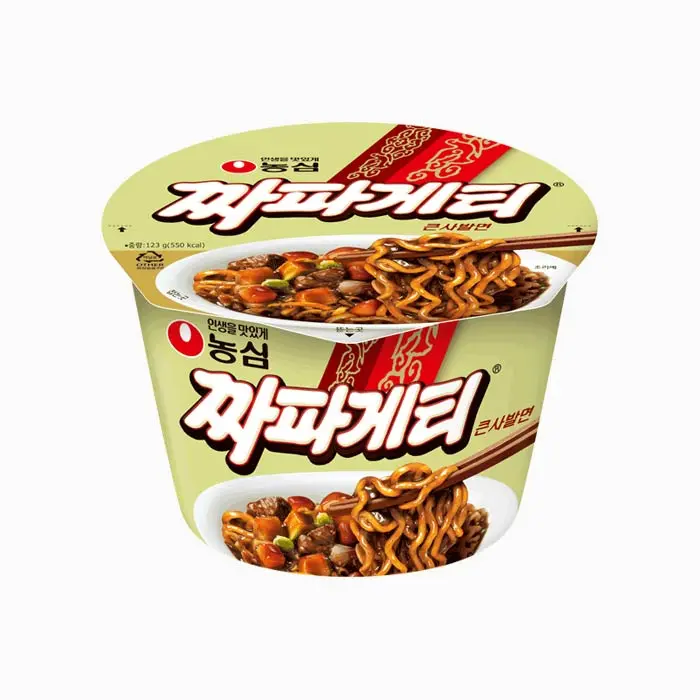
Recommended: https://amzn.to/4iagUrz (US), https://amzn.to/41w3qPH (DE), https://amzn.to/4i8P66O (BE, NL), https://amzn.to/4idLT56 (UK)
- The Black Jjapagetti
This version enhances the flavors with the richness of beef and stir-fried onions, making it deeper and more savory. The noodles are non-fried, adding a chewy texture, and the chunky vegetable flakes bring an extra bite.
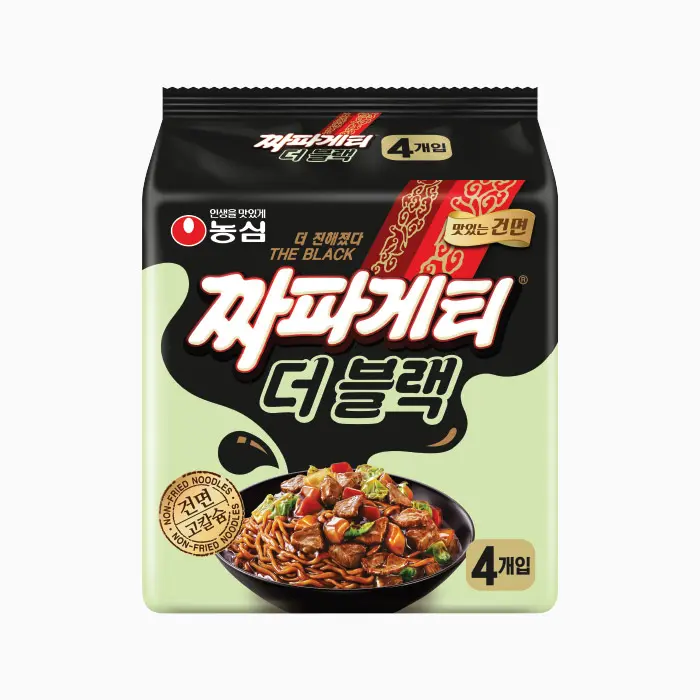
- Mala Jjapagetti
For spice lovers, it adds the numbing heat of mala, a popular Chinese flavor profile. Loved by many Koreans, this version has a strong following among those who crave bold and spicy flavors!
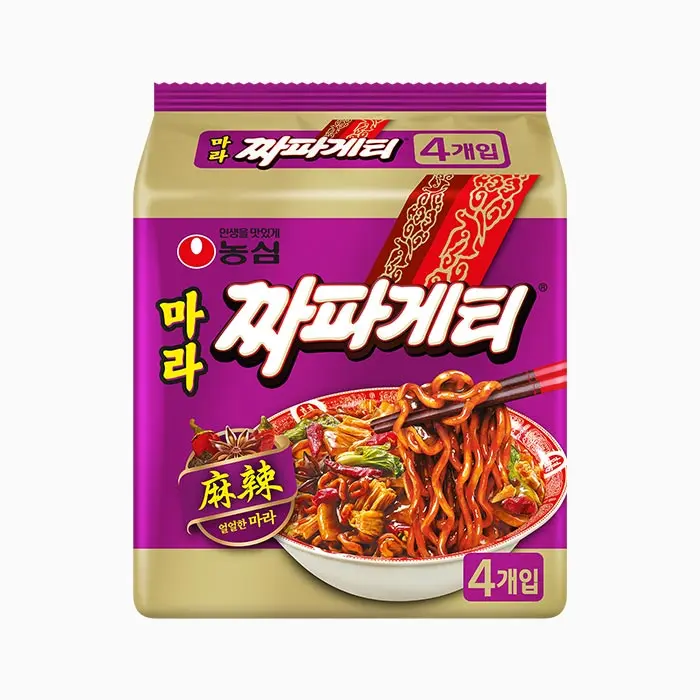
- Sichuan Jjapagetti
Packed with chili oil, this spicy version adds a kick while balancing the richness with heat. It’s a great choice for those who find the original too sweet and salty, but don’t want something as intense as buldak noodles. No need to worry—it’s spicy, but not overwhelming!
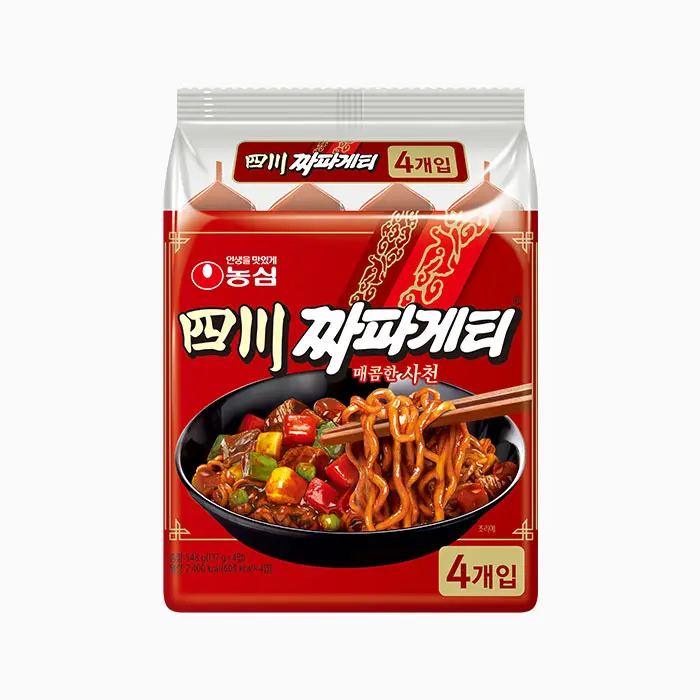
What Is The best Instant Jajangmyeon?
Top 3 Jajang Ramen in Korea for 2024
- Top 3: Nongshim Jjawang
Nongshim’s Jjawang uses thick, flat noodles that resemble the type of noodles found in traditional Jjajangmyeon, making it feel more like the real thing compared to other Jajang ramens. It has a strong vegetable flavor from the included oil, and many people find it sweeter than regular chapagetti. The jajang flavor is more intense, which is why some consider jjawang to be closer to the taste of Chinese restaurant jjajangmyeon.
- Top 2: Ottogi Jjasulrang
Jjasulrang is known for its unique cooking method where you don’t need to discard the water after boiling the noodles. It has a similar noodle thickness to Chapagetti. Ottogi uses a special roasting method for the chunjang (black bean paste) and adds green onion and onion oil to enhance the flavor. Compared to Chapagetti, Jjasulrang is more savory and less sweet, which is slowly making it a favorite for many who enjoy a richer jjajang flavor.
- Top 1: Nongshim Chapagetti
First introduced in Korea in 1984, Jjapagetti is the classic that started the jjajang ramen trend. It has remained a popular favorite for decades and is considered the quintessential jjajang ramen in Korea. When Koreans are asked to describe the taste of jjajang ramen, Jjapagetti is usually the basic reference.
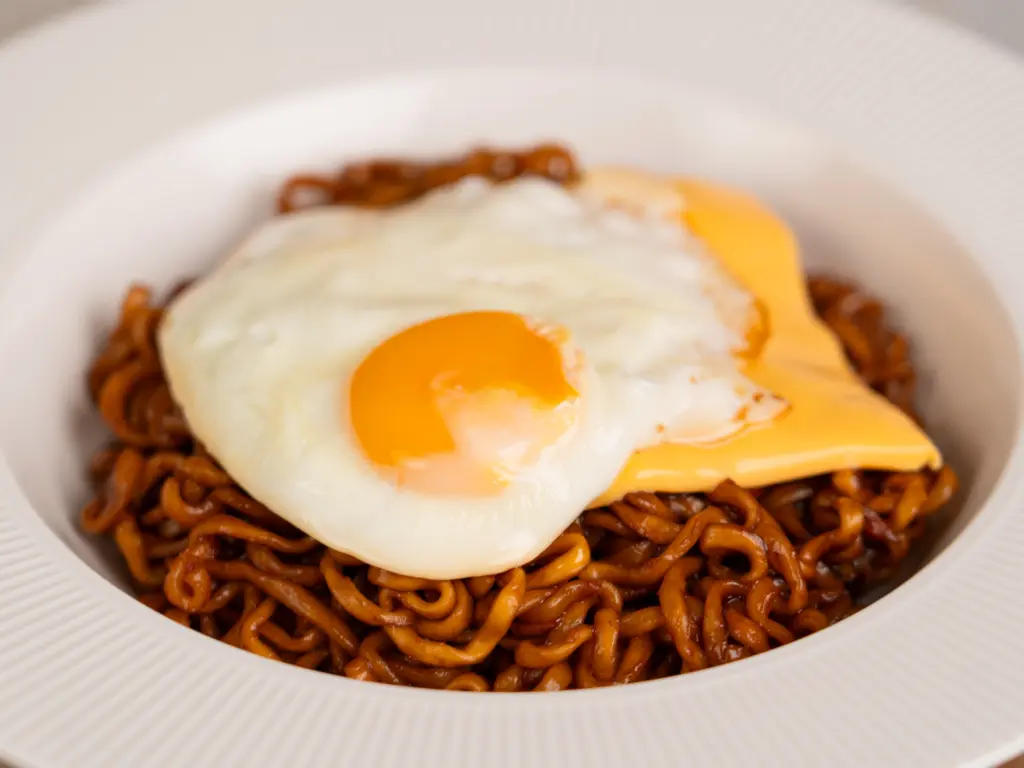
What is Black Bean Sauce Made Of?
Black bean sauce in Black bean noodles is typically made from fermented black beans, pork, cabbage, and sugar. Since you need to sauté the chunjang (black bean paste) to make this sauce, most people either buy pre-cooked chunjang or jjajang powder at home.
In fact, many Koreans don’t make jajangmyeon at home. Instead, they prefer ordering it from Korean-style Chinese restaurants. When cooking at home, people usually purchase an instant jjajang sauce packet and serve it over rice, often making jjajangbap (jjajang rice) rather than using noodles.
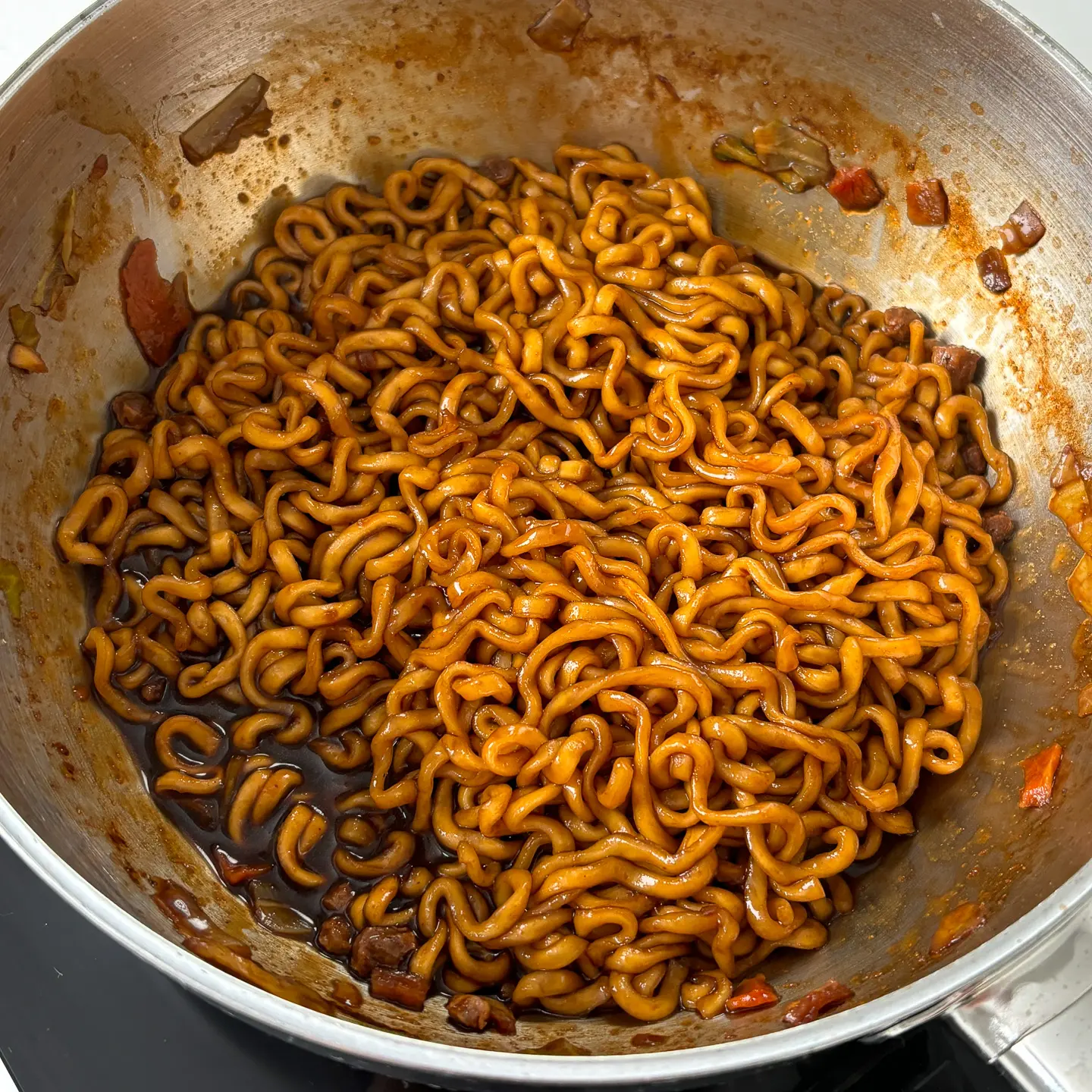
Updated Official Recipe
The original Chapagetti recipe involved boiling the noodles and draining the water before mixing the sauce. However, the current official recipe has changed to using less water from the start, allowing the sauce to soak into the noodles more deeply as it cooks. This also eliminates the need to drain the water, making the process simpler and more convenient.
Popular Chapagetti recipe
- ‘Parasite’ Hanwoo Ribeye Chapaguri
In the movie Parasite, Chapaguri is topped with Hanwoo ribeye. Chapaguri, a mix of Chapagetti and spicy Neoguri noodles, has been a popular recipe in Korea. In the film, a piece of premium Hanwoo(Korean beef) ribeye is grilled and placed on top. Since Hanwoo beef is quite expensive in Korea, it symbolizes wealth in the movie.

Chapaguri: https://amzn.to/43TkhPA (US), https://amzn.to/43TkgLw (UK), https://amzn.to/43RAYuH (DE)
- Kielbasa Sausage Jjapagetti
If you’ve seen mukbang (eating broadcast) videos on YouTube, you’ve probably come across people topping their Jjapagetti or Buldak ramen with Kielbasa sausages. The juicy burst of flavor from the sausage combined with the rich taste of Chapagetti creates an explosion of umami that only those who’ve tried it can truly appreciate.
- Buldak Chapagetti
This recipe combines the spicy Buldak ramen with Chapagetti or simply pours Buldak sauce over Jjapagetti for a spicier version of the dish. It’s a great option for those who love heat, offering a deliciously spicy and satisfying way to enjoy Jjapagetti
Buldak Ramen: https://amzn.to/3DiEovB (US), https://amzn.to/3F3ixZp (NL), https://amzn.to/3D8wDs8 (DE), https://amzn.to/42aeDqW (UK)
Buldak Hot Sauce: https://amzn.to/42duK6Z (US), https://amzn.to/429KIxR (DE), https://amzn.to/4j8vnoe (NL, BE), https://amzn.to/42dGmqE (UK)
Perfect Side Dishes
- Green Onion Kimchi (파김치)
Koreans love pairing Chapagetti with green onion kimchi. While napa cabbage kimchi is also a great match, green onion kimchi brings out an amazing harmony. The sharp, pungent flavor of green onions complements the rich, oily taste of Chagyechi perfectly.
Cabbage kimchi: https://amzn.to/3EfYdUN (UK), https://amzn.to/4lwq0B8 (US)
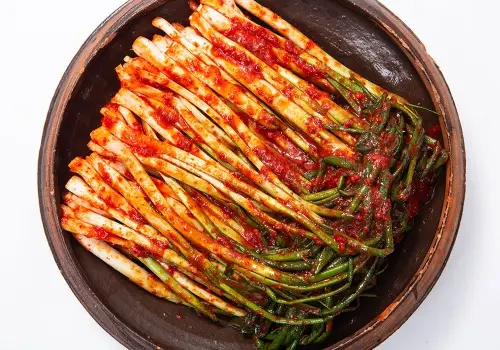
- Pickled Radish (단무지)
Just like when you eat Chinese-style jajangmyun, pickled radish is a refreshing side that cuts through the greasiness of Chagyechi. It’s a great way to balance the richness and add a bit of tang to your meal.
Recommended: https://amzn.to/3Rjj2l4 (UK), https://amzn.to/4jAY4dI (US), https://amzn.to/4jtP8Xd (DE), https://amzn.to/3RhNgFe (NL, BE)
- Fried Dumplings (군만두)
If you feel like Chagyechi alone isn’t quite enough, try pairing it with some crispy fried dumplings. You’ll feel like you’re dining at a Chinese restaurant, and it makes for a perfect, delicious, and quick meal.
Bibigo Mandu(dumplings): https://amzn.to/3EcgWAx (US), https://amzn.to/3R9GvFh (DE)
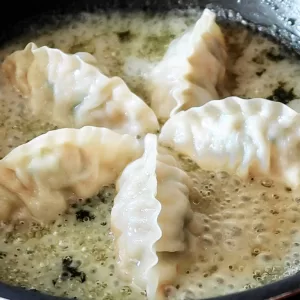
If you’re just pan-frying regular dumplings, try this cheese dumpling version instead. With a crispy outside and gooey cheese inside, it’s a game-changer. One bite, and you’ll know—cheese takes it to a whole new level. It pairs incredibly well with black bean noodles.
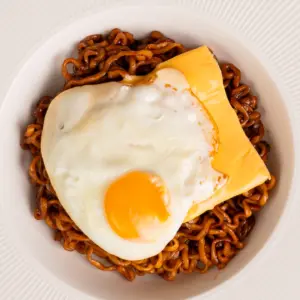
Chagyechi – The Ultimate Chapagetti with Egg & Cheese
Equipment
- 1 Pot
- 1 Frying pan
- 1 Spatula
- 1 chosticks
Ingredients
- 1 pack Chapagetti
- 1 egg
- 3 tbsp cooking oil
- 1 slice cheddar cheese
Instructions
- Pour 300 ml of water into a pot and bring it to a boil over high heat.
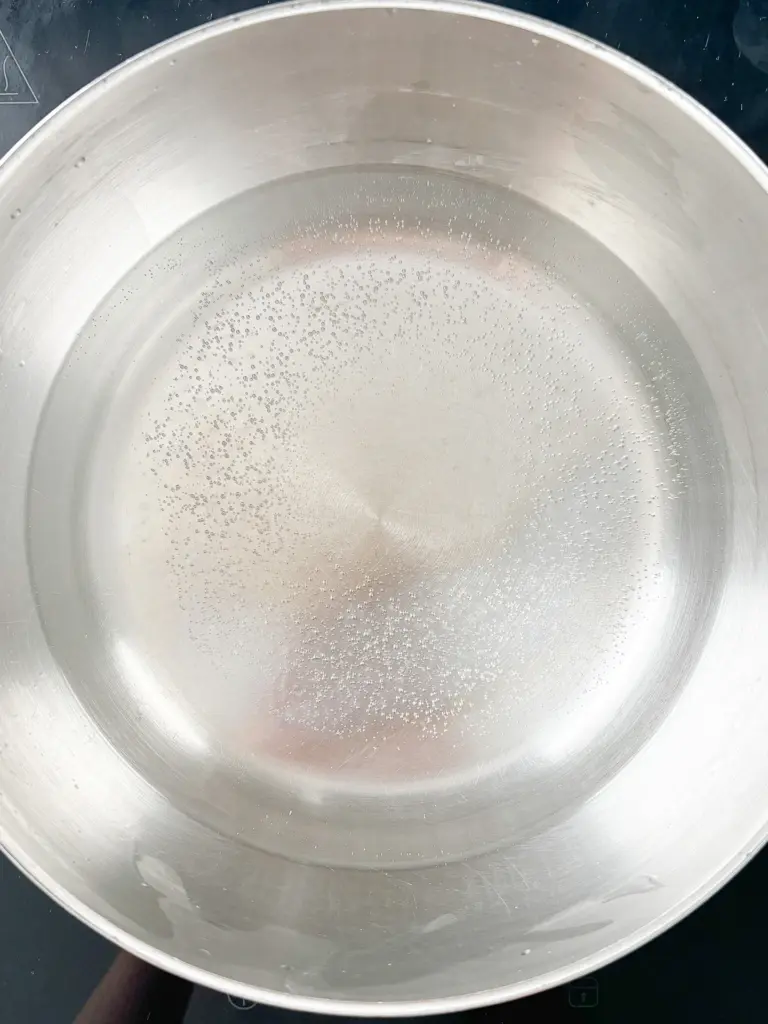
- Before the water boils, add the seasoning powder and vegetable flakes from the Chapagetti packet.
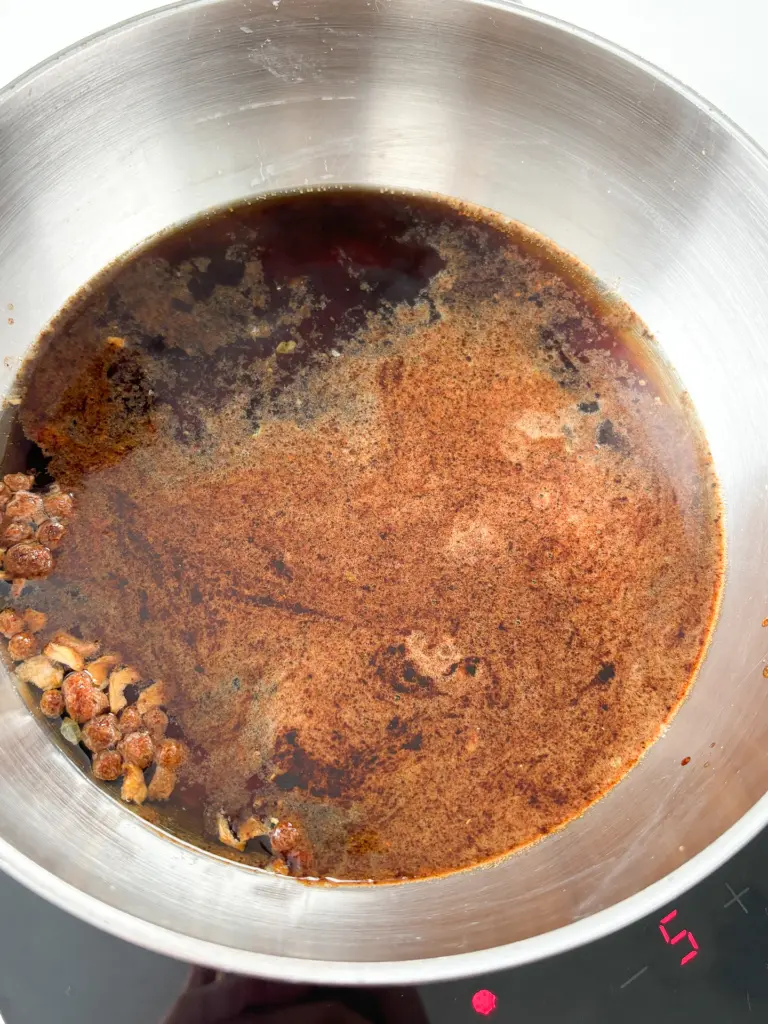
- Once boiling, add the noodles and cook over high heat, letting the sauce reduce and soak into the noodles.
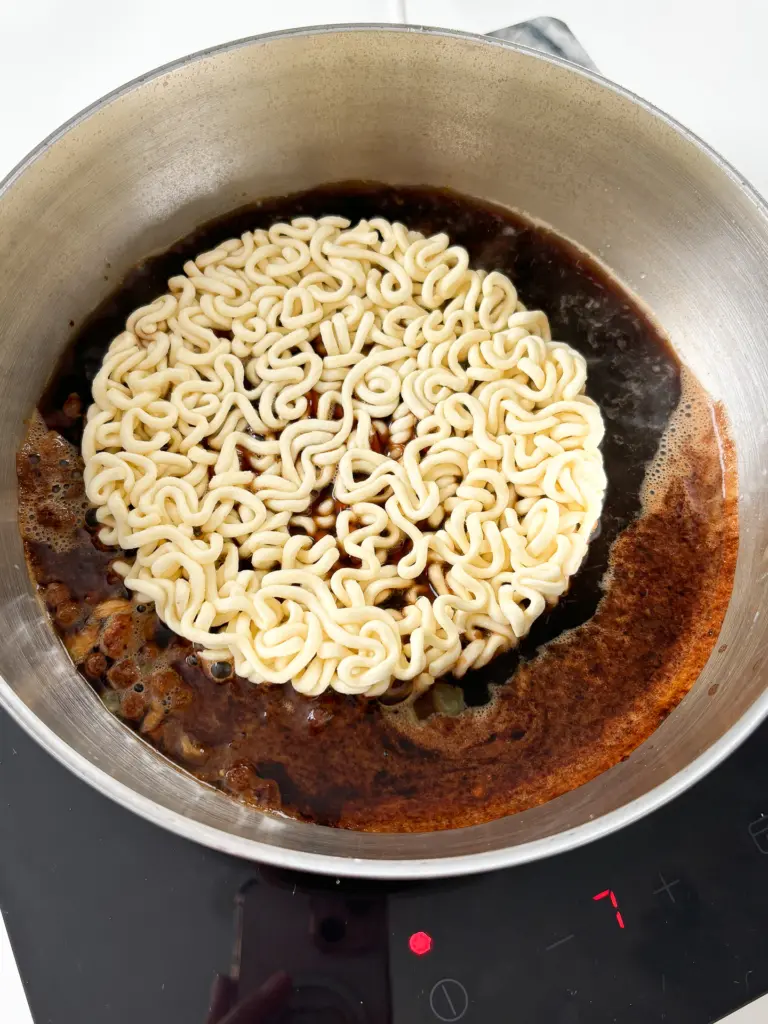
- When most of the water has evaporated and the sauce is well absorbed, transfer the noodles to a serving plate.
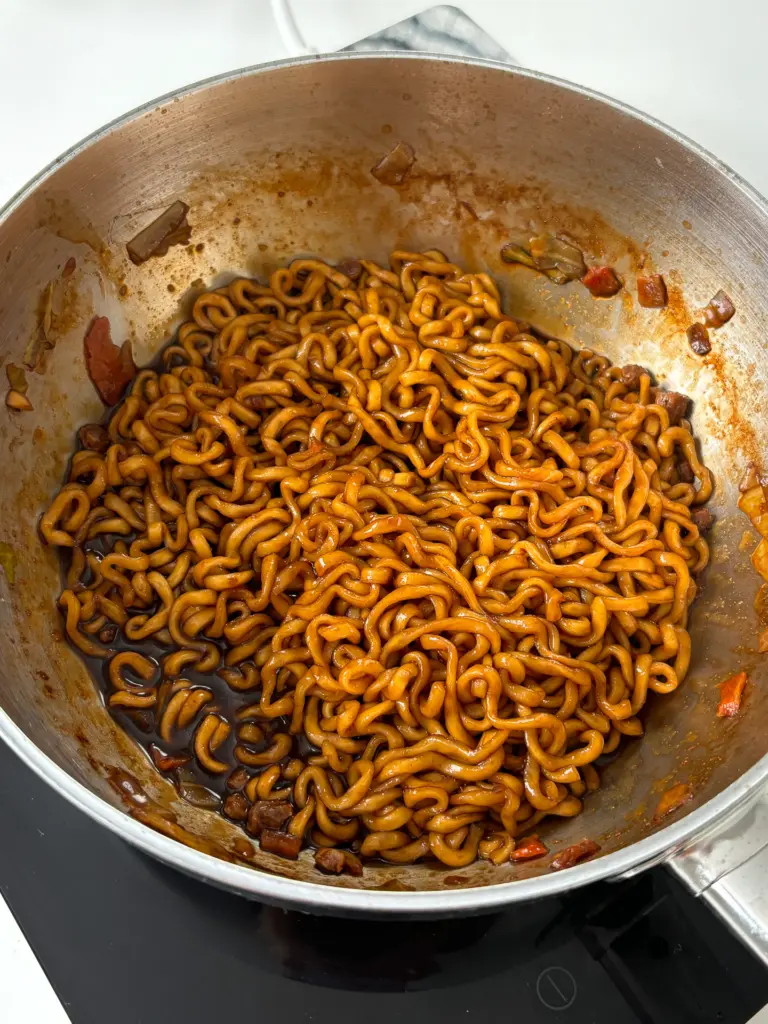
- While the noodles are still hot, place one slice of cheddar cheese on top to let it melt.
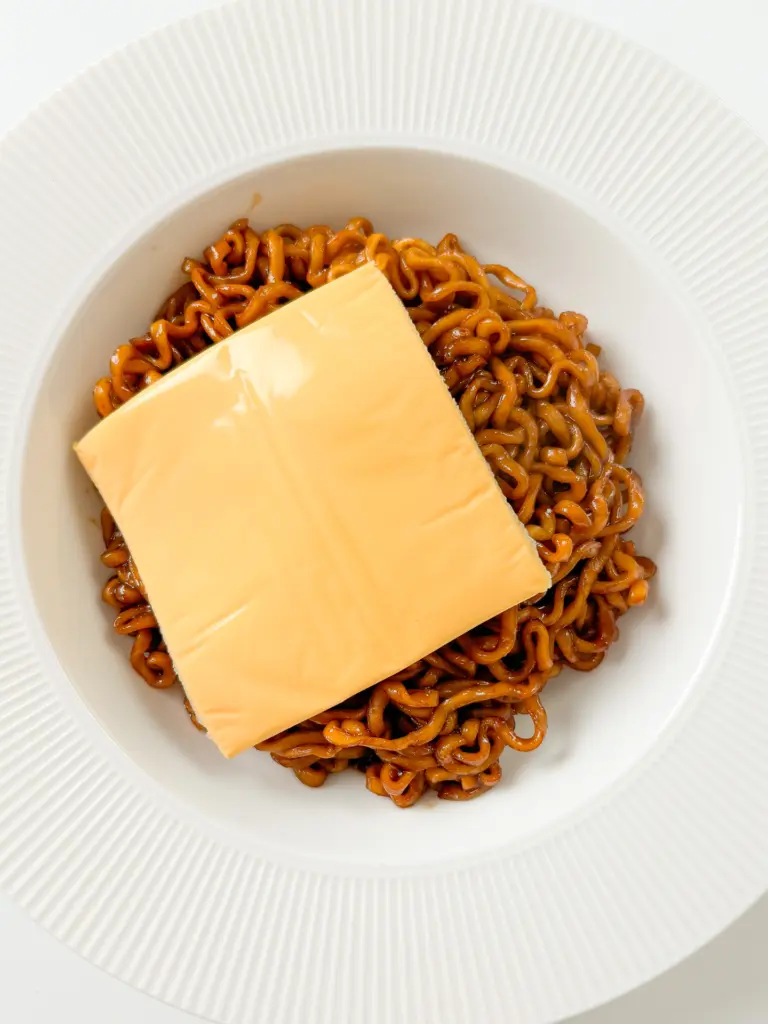
- In a separate pan, heat 3 tbsp of oil and fry an egg sunny side up or to your preferred doneness. Place it on top of the noodles and cheese.
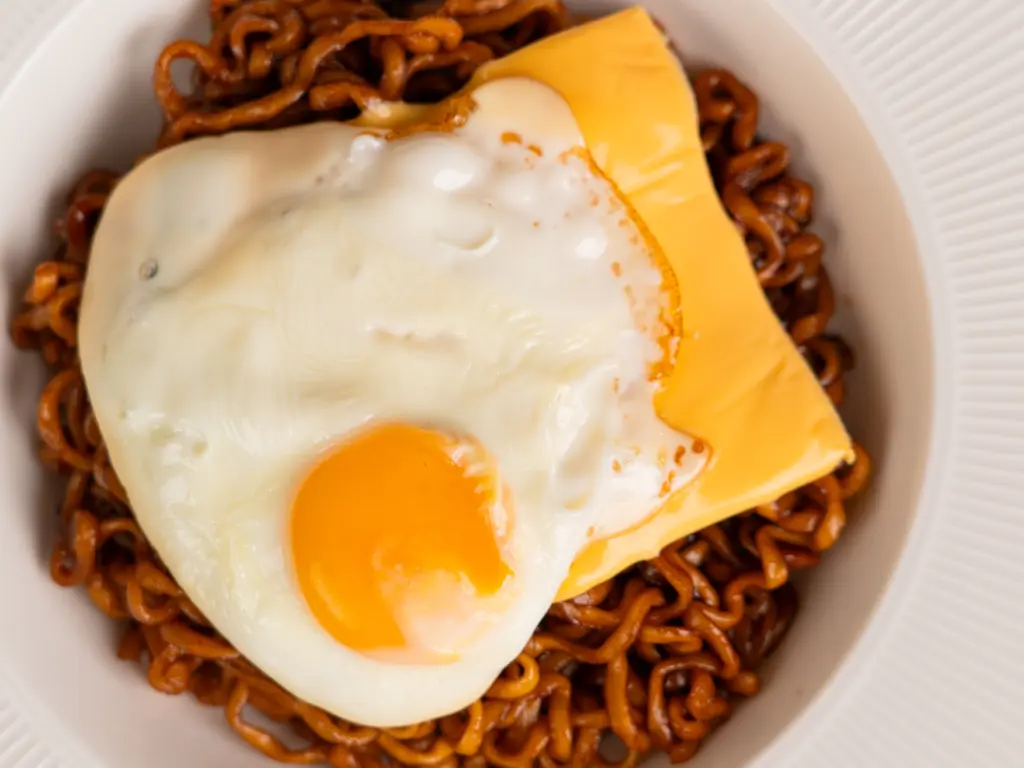
- Pour the olive oil packet (included in Chapagetti) over the dish.
Chagyechi 짜계치
- Jal meokgetseumnida! 잘 먹겠습니다!
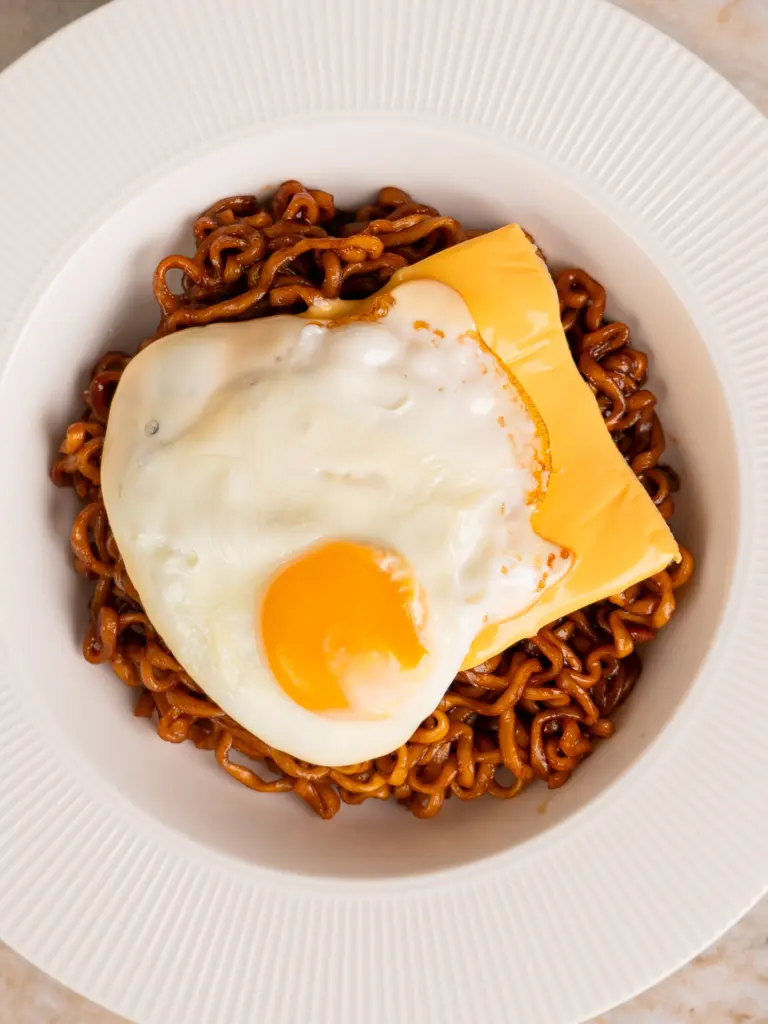
- Mix everything well—ramyun, cheese, and egg—and enjoy!
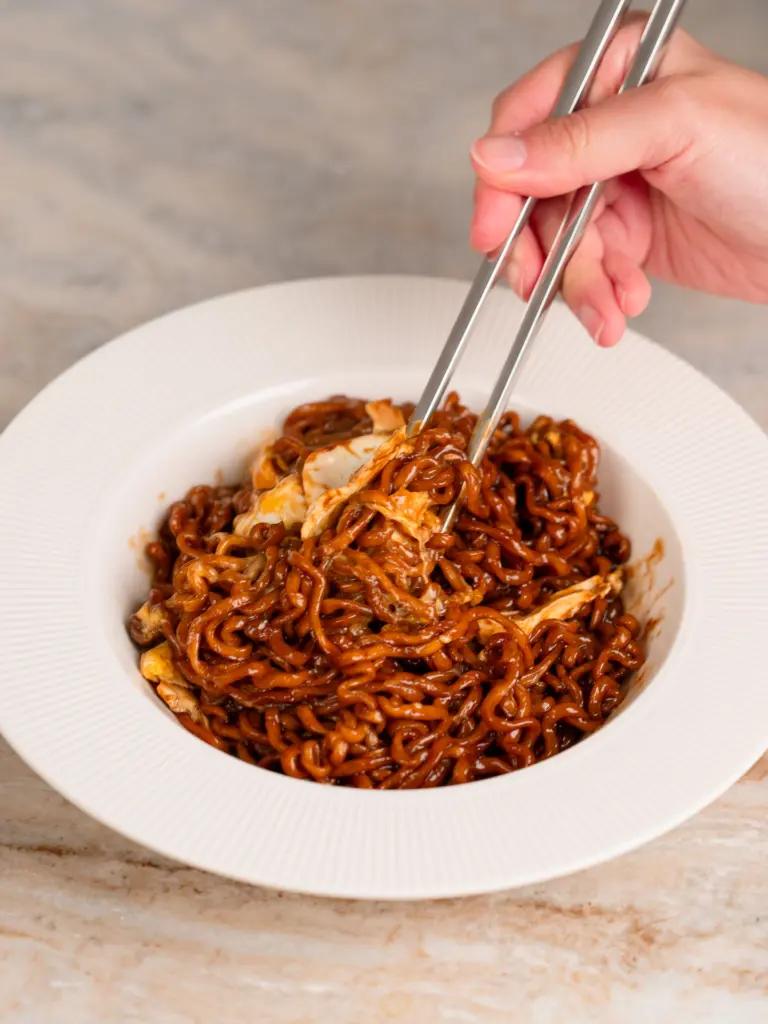
- Tastes even better with a side of green onion kimchi(Pa kimchi) or regular cabbage kimchi.
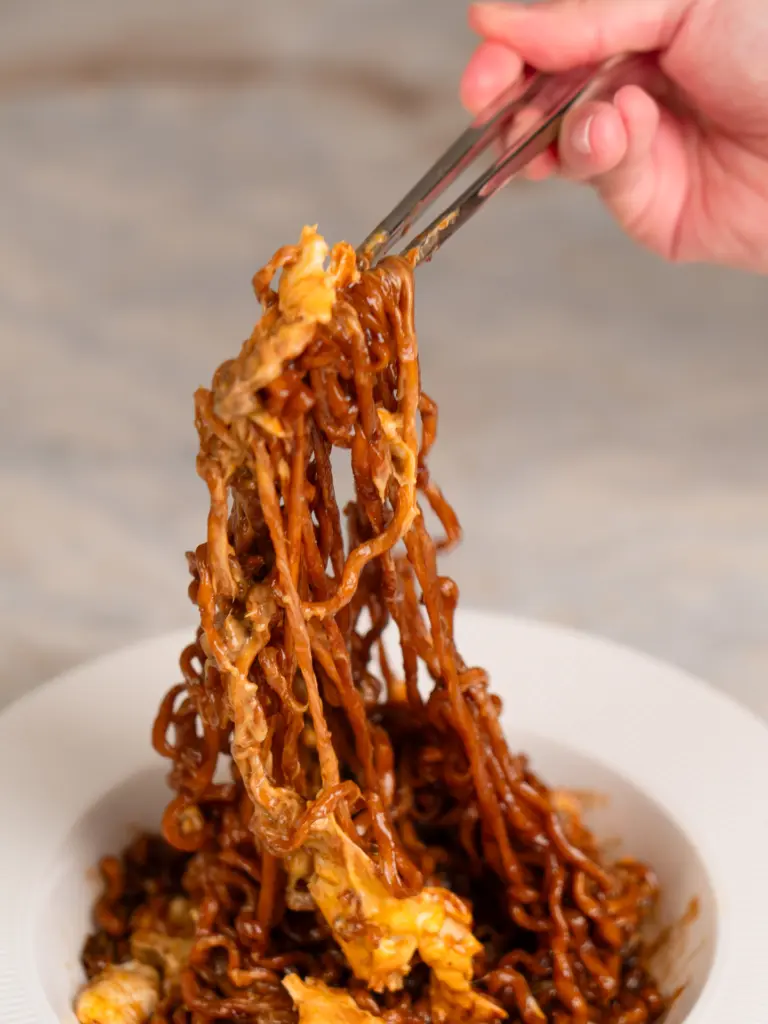
Did you make this recipe?
Please let me know how it turned out for you! Leave a comment below and tag @blondekimchi_ on Instagram and hashtag it #blondekimchi.
